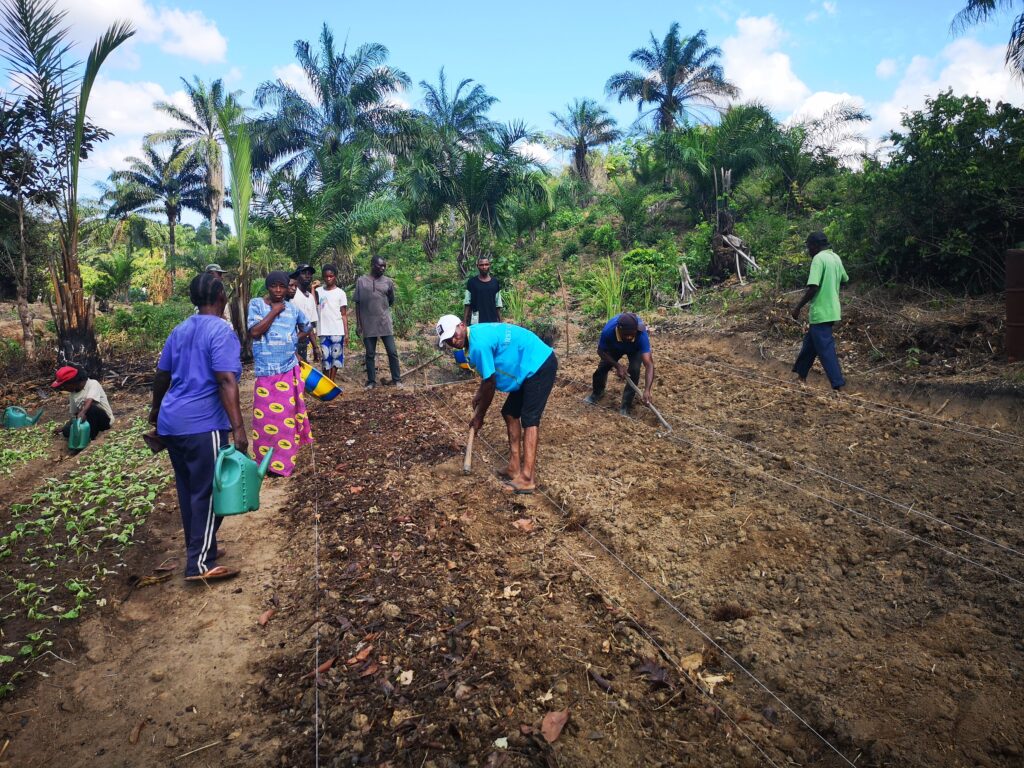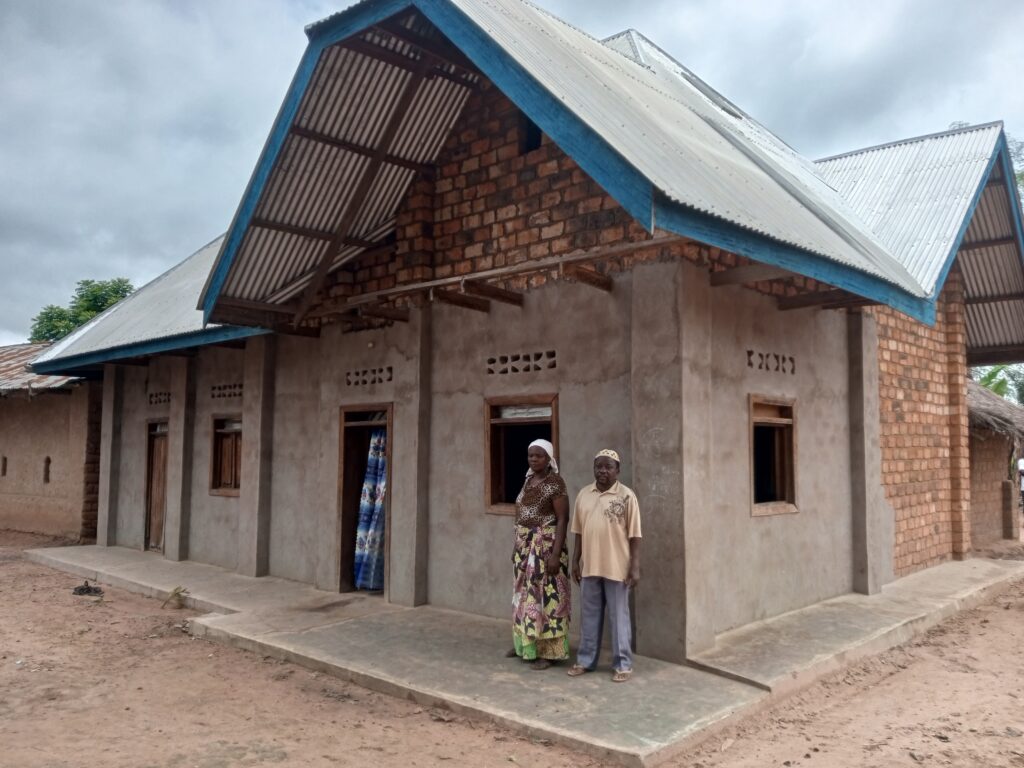Increased crops led to a building boom in the village

The village of Malela in DR Congo has grown from five to around 100 houses since Caritas started a food security program there in 2013. Farmer Amisi Waliuzi Yaya and his family are among those who have significantly improved their standard of living after receiving training in climate-adapted agriculture.
I am so grateful for the training I and others here in the village have received through this food security program. The support Caritas has given me has changed my life. Now I praise God that I met Caritas.
Amisi Waliuzi Yaya, participant in the food security program of Caritas in Dr. Congo
Amisi Waliuzi Yaya is one of several thousand participants in Caritas Norway's food security program in DR Congo. He is married to Mukufu Kakese and they have nine children together. Most of the children have moved out. Only three still live with them in their home in Malela. Three of the children are studying in Lumbumbashi and one in Kinshasa.
A furnished home
The village of Malela is located in Kasongo territory, approximately 245 kilometers from the city of Kindu, the capital of Maniema province in central DR Congo. When the first phase of the Caritas food security program started in 2013, Amisi and his family lived in a small mud hut with a thatched roof. Today, the village has around a hundred houses, and Amisi and Mukufu have built themselves a house with three bedrooms, two living rooms and an annex. Solar panels provide light in the evening. At the same time, they have been able to afford to send their children to school.
Now that my health no longer allows me to do heavy physical work in the fields, I am glad that we have built this house. For me, my house is a memory of Caritas and the help I, as a Muslim, have received from an organization from the Catholic Church.
Amisi Waliuzi Yaya, participant in the food security program of Caritas in Dr. Congo

Learned new cultivation techniques
He and his wife believe the cultivation techniques they learned through the food security program, as well as organizing the local farmers into cooperatives, have been key to their success. Selling vegetables and goats has enabled Amisi and his wife to put money aside for a house.
You don't build a house in a day. I took my time to save and bought building materials gradually as I earned money. Today we sleep well in a solid house made of bricks and metal. I hope Caritas and their partners in Norway who have supported this program can give more families who are in a vulnerable situation the chance to improve their living conditions.
Amisi Waliuzi Yaya, participant in the food security program of Caritas in Dr. Congo
According to the UN, seven million people in DR Congo are dependent on humanitarian aid. The food security program is funded by Norad and donors.